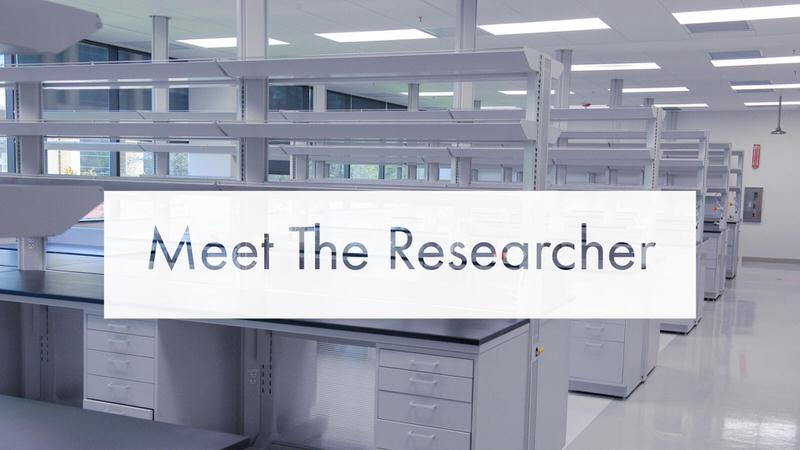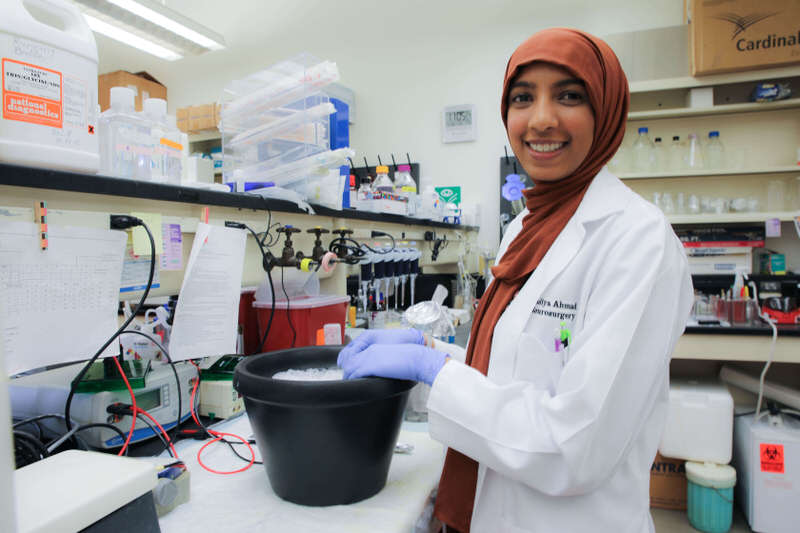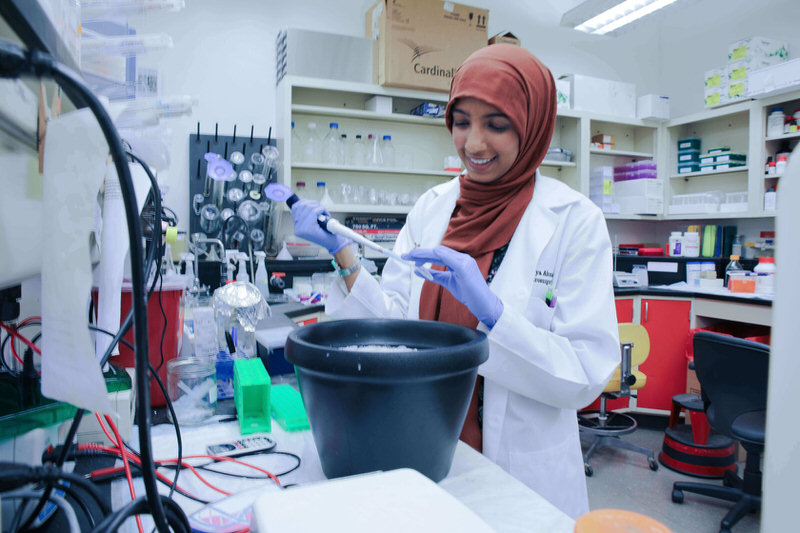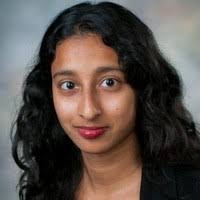Sadiya Ahmad: Knowledge is Power

 Sadiya Ahmad is a firm believer in education. She was born in Galveston, Texas at The University of Texas Medical Branch and raised in the Rio Grande Valley. She attended The University of Texas Pan American (now known as UT – Rio Grande Valley) and currently attends The University of Texas Health at San Antonio.
Sadiya Ahmad is a firm believer in education. She was born in Galveston, Texas at The University of Texas Medical Branch and raised in the Rio Grande Valley. She attended The University of Texas Pan American (now known as UT – Rio Grande Valley) and currently attends The University of Texas Health at San Antonio.
“My whole life has been tied to the UT System: I am a product of it. My dad works at UTRGV and I’ve had professors from different colleges tell me that UT is internationally known, so I have a lot of school pride.”
 Ahmad is currently a third year student in the Integrated Biomedical Sciences program in the Cell Biology, Genetics, and Molecular Medicine discipline.
Ahmad is currently a third year student in the Integrated Biomedical Sciences program in the Cell Biology, Genetics, and Molecular Medicine discipline.
She explains that she was always interested in science because it made sense to her at an early age. She was also attracted to the fact that science is always changing, and challenging.
After graduating Summa Cum Laude with a bachelor’s degree in Biology, she was approached by a Teach for America representative who showed her a map of the United States. What caught her eye on the map was that the Rio Grande Valley was highlighted as an area with one of the worst levels of education.
“I had never seen the Rio Grande Valley highlighted in that way. My plan was to go from an undergraduate program to a graduate program without any interruptions, but I love my origins—where I grew up—so I decided to teach before jumping into graduate school,” she said.
The map inspired her to join Teach For America where she taught 10th and 11th grade chemistry and physics at Palmview High School.
“Those two years at Palmview High School were tougher than my three years in graduate school so far. The Teach For America cohort was made of people from all walks of life and from colleges across the country. The classroom was a great equalizer—the kids didn’t care what school you went to—they just wanted to know if you were worth their time,” she said. “You really have to know who you are because the kids can smell fear.”
Ahmad explained that one of the reasons her time as a teacher was challenging was that many students didn’t feel the need to learn science.
“My advice to them was that knowledge is power. It doesn’t hurt to learn something that you might use in your unforeseeable future.”
Despite the challenges, Ahmad realized that teaching was her true passion and after two years with Teach For America, she joined the University of Houston to do a post-baccalaureate program where she did research on cardiovascular disease. After that, she decided to apply to the Integrated Biomedical Sciences program at the Graduate School of Biomedical Sciences at UT Health San Antonio.
“Cell Biology, Genetics, and Molecular Medicine (CGM) seemed like a broad field but I wasn’t sure if it was the right discipline for me. After meeting with Dr. Renee Yew, the CGM discipline director, I chose to join the CGM program because she told me how I could tailor the coursework to my scientific interests,” she said. “The best decision I made at this school was being part of the CGM discipline and joining my current lab.”
Ahmad is in the lab of Dr. Naomi Sayre where she looks at the biological mechanisms that contribute to cognitive decline following brain injury.
“Specifically, I study Apolipoprotein E4 (ApoE4) which is a genetic risk factor for poor long-term outcome after brain injury,” she said. “We don’t know how ApoE4 causes poor-outcome but with my research, we would have a potential route for new therapies.”
In addition to being chosen as the 2018 Presidential Ambassador for the Graduate School of Biomedical Sciences, she was also selected for the prestigious Translational Science Training TL1 Scholar Award from the Institute for Integration of Medicine and Science at UT Health San Antonio.
“Science and medicine meet at a crossroad, but we need move in the same direction. Patient care is important in making lives better today, but to improve medicine as a whole, we need innovation – that’s where science comes in,” she said. “Science is progress; without it, medicine would be stagnant.”
Ahmad is also passionate about improving scientific communication.
“People don’t understand science and we need to be able to communicate in a way that people will understand us. As an ambassador, I think we [as scientists] need to get out in our communities.”
After she graduates, Ahmad plans to return to teaching.
“I was a teacher; I came into this [graduate school] with the intention of becoming a scientist and a better teacher. I hope to accomplish both aspirations by teaching science in the future.”
 This article was written by Charlotte Anthony, marketing specialist at the Graduate School of Biomedical Sciences at UT Health San Antonio. This article is part of the “Meet The Researcher” series which showcases researchers at the Graduate School of Biomedical Sciences at University of Texas Health Science Center San Antonio.
This article was written by Charlotte Anthony, marketing specialist at the Graduate School of Biomedical Sciences at UT Health San Antonio. This article is part of the “Meet The Researcher” series which showcases researchers at the Graduate School of Biomedical Sciences at University of Texas Health Science Center San Antonio.
